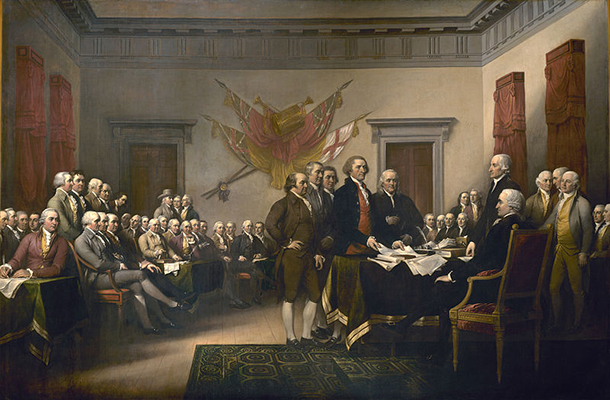
According to a recent study by The National Association of Scholars, colleges and universities in the United States are presenting a skewed perspective of American history.
Based on the study’s findings, the NAS claims that American history courses at the college-level often emphasize race, class and gender, and de-emphasize political, intellectual, economic, diplomatic and military history.
The study centered around a case study of the syllabi of 85 courses and the curriculum vitae of 46 faculty members of American history courses taught in the fall 2010 semester at the University of Texas at Austin and Texas A&M University. The report concludes that their findings extend beyond the two Texas universities and similar characteristics are reflected in universities around the United States.
Richard Fonte, author of the report, explained that the researchers collected 625 reading assignments from the classes and categorized them into one or more of 11 categories based on their content. The courses were then rated on their level of race, class and gender material. Based on those rankings they ruled that there is an over emphasis on these topics in the majority of the courses.
NYU history professors, however, disagree with the report’s claims.
Thomas Bender, an American history professor at NYU, argued that although race, gender and class play a dominant role in the education of American history, that does not mean everything else is forgotten.
“The study of race, class, and gender does not preclude the study of politics, economics and diplomacy,” he said. The dimensions of historical experience expand the study of those topics as well as being topics in their own right.”
Robert Cohen, a professor of history and social studies, commented on the need to focus on race, class, and gender at the college level.
According to Cohen, the U.S. history taught at a high school level generally skips over social issues and focuses on the conventional topics the NAS promotes. He argues that a true grasp of many important historical events and national policies require a discussion of race, class and gender.
CAS senior Nicole Nadig, a member of the NYU history club, agrees that these topics are necessary to discuss and does not think the NAS’s critiques apply to the Department of History at NYU.
“We do not live in a one-race, one-gender, one-class society,” she said. To not talk about all of these social groups and their roles in important events in history would be somewhat ludicrous.”
Peter Wood, president of the NAS, says the report does not ignore the overlap of race, class and gender with other topics.
“Our classification system was designed to capture the overlaps,” he said. This aspect of the report has been ignored by many of the report’s critics who have consequently grossly distorted our findings.”
NYU professor of history, Maria E. Montoya, who has also taught history at the University of Michigan, questions the validity of the report, citing the NAS’s reputation for being conservative.
“Groups like that will always find something to complain about on America’s campuses,” she said.
Because the report only focuses on two schools in the same state, critics question whether it is representative of the entire country.
However, Wood explains the reason the research was conducted at UT and Texas A&M.
“These are the two flagship public universities in Texas. We did the study in Texas because Texas requires students at public universities to take two semesters of American history,” he said.
Additionally, the state requires public records of the syllabi of every course and curriculum vitae of the professors.
“No other state has these rules and without them the study would have been impossible,” Wood said.
Cohen questions the conclusion for a different reason, believing that most schools in Texas adopt a conservative curriculum, and he wonders how a conservative state could show such results slanted to the left.
Moumita Basuroychowdhur is a contributing writer. Email her at [email protected].






















































































































































